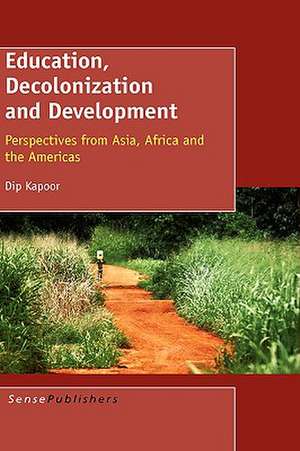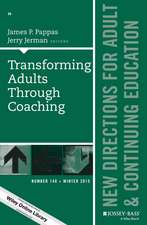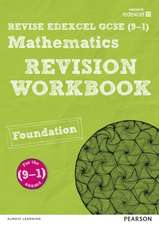Education, Decolonization and Development: Perspectives from Asia, Africa and the Americas
Autor Dip Kapooren Limba Engleză Paperback – 31 dec 2008
| Toate formatele și edițiile | Preț | Express |
|---|---|---|
| Paperback (1) | 309.24 lei 38-44 zile | |
| Brill – 31 dec 2008 | 309.24 lei 38-44 zile | |
| Hardback (1) | 559.82 lei 38-44 zile | |
| Sense Publishers – 21 mai 2009 | 559.82 lei 38-44 zile |
Preț: 309.24 lei
Nou
Puncte Express: 464
Preț estimativ în valută:
59.17€ • 61.91$ • 49.16£
59.17€ • 61.91$ • 49.16£
Carte tipărită la comandă
Livrare economică 29 martie-04 aprilie
Preluare comenzi: 021 569.72.76
Specificații
ISBN-13: 9789087909246
ISBN-10: 9087909241
Pagini: 142
Dimensiuni: 156 x 234 x 8 mm
Greutate: 0.19 kg
Editura: Brill
Colecția Brill
Locul publicării:Netherlands
ISBN-10: 9087909241
Pagini: 142
Dimensiuni: 156 x 234 x 8 mm
Greutate: 0.19 kg
Editura: Brill
Colecția Brill
Locul publicării:Netherlands
Recenzii
"This book encapsulates a rare and complex dialogue about the radical potential of decolonizing epistemologies and educational practices anchored in the lives and struggles of indigenous communities in the Global South. An important and far reaching engagement with Euro-American, Marxist, postcolonial, and critical education theories of agency and collective praxis. Dip Kapoor and his colleagues pose theoretical and methodological questions about education, development, and decolonization in refreshingly smart and new ways."
CHANDRA TALPADE MOHANTY, Chair, Department of Women’s and Gender Studies Syracuse University, USA
"This book makes a major contribution to our understanding of the ‘coloniality of power’ as it has affected indigenous peoples in Asia, Africa and the Americas. First, Kapoor and his contributors break new intellectual ground in departing from stuffy and often times arid social science theory in developing novel approaches to analysing indigenous movements and issues that capture the complexity, contradictions and world views of the colonised. In this respect this collection of essays presents us with possibilities for reconceptualising its salient themes of Education, Decolonisation and Development from below, instead of from the lofty vantage points of the western social science canon. Second, these authors consistently remind us that we do not live in a post-colonial era - as some writers would have us believe—but that the 21st century is as much defined by colonialism/imperialism as were the 19th and 20th centuries. They also remind us, however, that neo-liberal globalisation (the hands off, contemporary version of colonial rule) has not gone unchallenged by indigenous communities. Rather, collective forms of indigenous resistance have emerged that have undermined colonial/imperial rule and which, in certain instances, have also generated counter-hegemonic alternatives from within the different contexts analysed in the book. As Kapoor and his collaborators show, these forms of resistance have assumed very different forms depending on their respective national, regional and local cultural contexts. Last, and perhaps most importantly, these essays contribute to the construction of a methodology of the margins that has the potential to give voice to those who have been silenced in history. In brief, this is a remarkable book that will become a standard text in courses on indigenous studies, the sociology/anthropology of development, international education and research methodology."
STEVE JORDAN, CHAIR, DEPARTMENT OF INTEGRATED STUDIES IN EDUCATION, FACULTY OF EDUCATION, MCGILL UNIVERSITY, QUEBEC, CANADA
CHANDRA TALPADE MOHANTY, Chair, Department of Women’s and Gender Studies Syracuse University, USA
"This book makes a major contribution to our understanding of the ‘coloniality of power’ as it has affected indigenous peoples in Asia, Africa and the Americas. First, Kapoor and his contributors break new intellectual ground in departing from stuffy and often times arid social science theory in developing novel approaches to analysing indigenous movements and issues that capture the complexity, contradictions and world views of the colonised. In this respect this collection of essays presents us with possibilities for reconceptualising its salient themes of Education, Decolonisation and Development from below, instead of from the lofty vantage points of the western social science canon. Second, these authors consistently remind us that we do not live in a post-colonial era - as some writers would have us believe—but that the 21st century is as much defined by colonialism/imperialism as were the 19th and 20th centuries. They also remind us, however, that neo-liberal globalisation (the hands off, contemporary version of colonial rule) has not gone unchallenged by indigenous communities. Rather, collective forms of indigenous resistance have emerged that have undermined colonial/imperial rule and which, in certain instances, have also generated counter-hegemonic alternatives from within the different contexts analysed in the book. As Kapoor and his collaborators show, these forms of resistance have assumed very different forms depending on their respective national, regional and local cultural contexts. Last, and perhaps most importantly, these essays contribute to the construction of a methodology of the margins that has the potential to give voice to those who have been silenced in history. In brief, this is a remarkable book that will become a standard text in courses on indigenous studies, the sociology/anthropology of development, international education and research methodology."
STEVE JORDAN, CHAIR, DEPARTMENT OF INTEGRATED STUDIES IN EDUCATION, FACULTY OF EDUCATION, MCGILL UNIVERSITY, QUEBEC, CANADA











